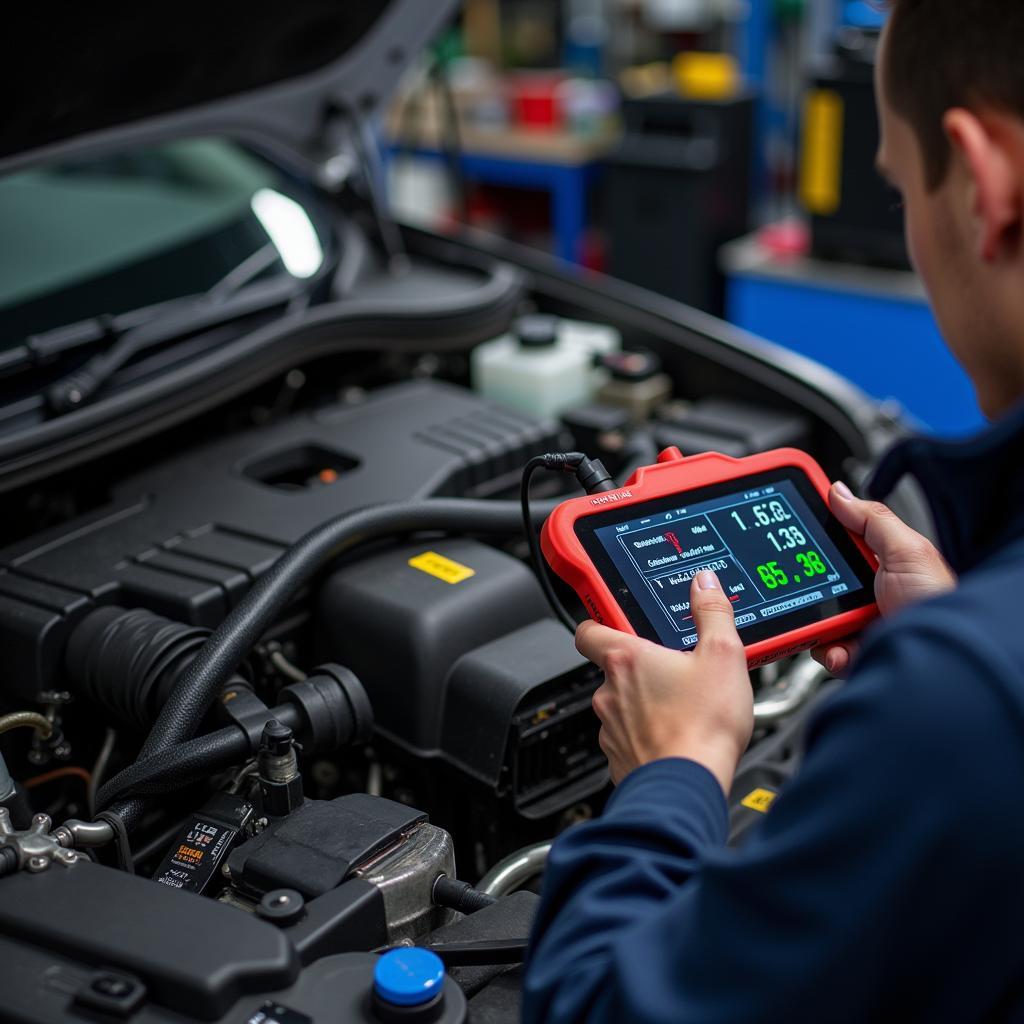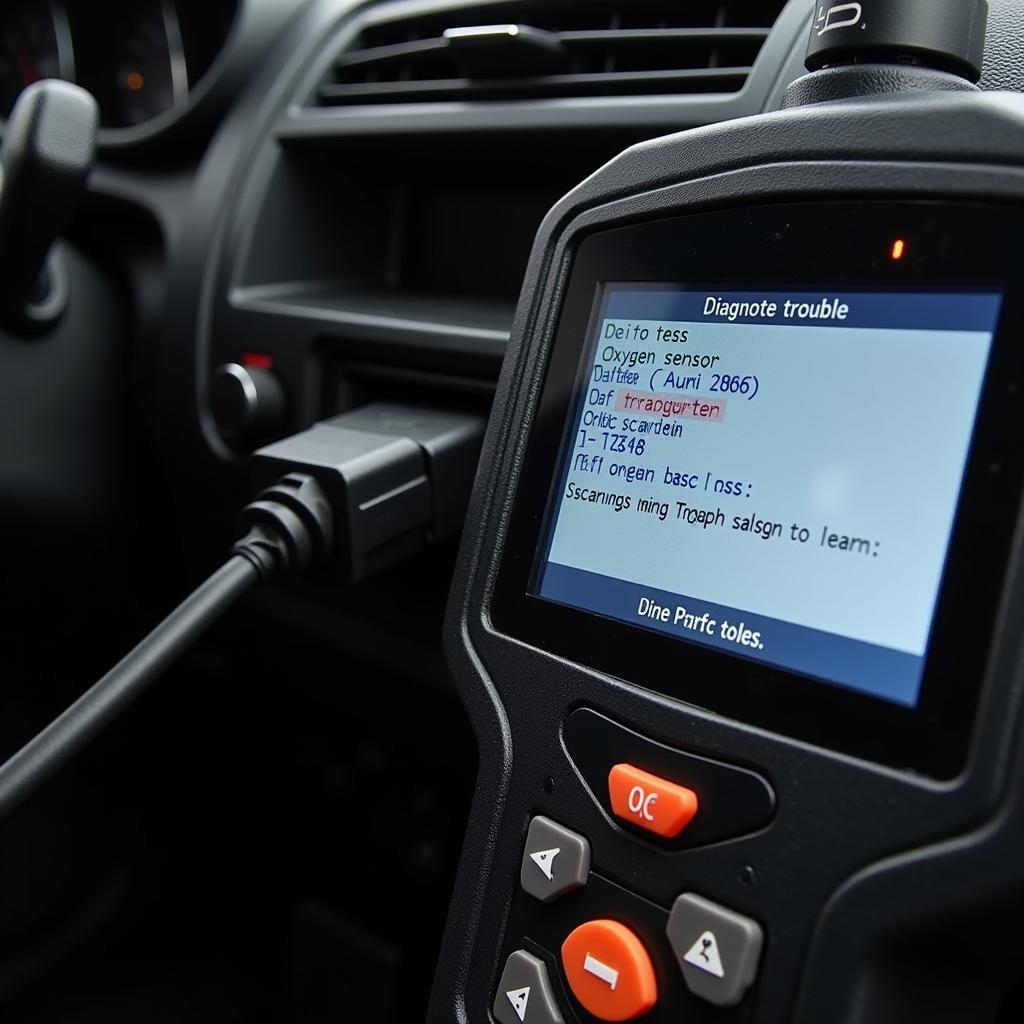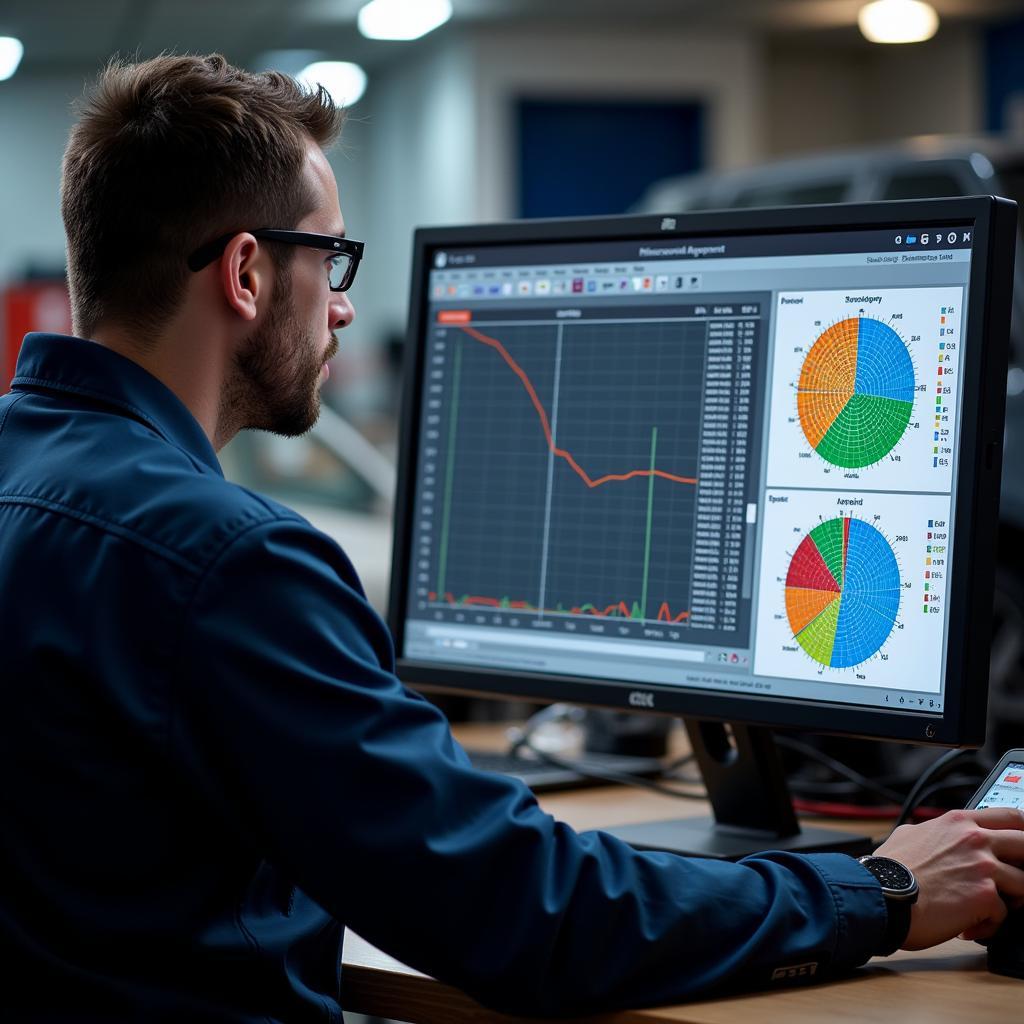The automotive world is rapidly evolving, with vehicles becoming increasingly sophisticated. To keep pace with this complexity, have become essential for mechanics, technicians, and even car enthusiasts. These tools provide a window into a vehicle’s electronic systems, allowing you to diagnose problems, read and clear fault codes, and access vital performance data.
However, the market is flooded with a dizzying array of diagnostic tools, each boasting unique features and capabilities. This guide will equip you with the knowledge to navigate this complex landscape and choose the perfect diagnostic solution for your specific needs.
Understanding the Importance of Accurate Car Diagnostics
Before delving into the intricacies of diagnostic tools, it’s crucial to understand why accurate car diagnostics are paramount. Modern vehicles rely heavily on intricate networks of electronic control units (ECUs) that manage everything from engine performance to safety features. When a problem arises, these ECUs generate fault codes that pinpoint the source of the issue.
 Mechanic Using a Diagnostic Tool
Mechanic Using a Diagnostic Tool
Ignoring these warning signs can lead to more severe and costly repairs down the line. That’s where car & truck diagnostic tools come in. By interpreting these codes and providing access to live data streams, these tools empower you to:
- Identify problems early: Diagnose issues before they escalate into major headaches, saving you time and money on costly repairs.
- Improve repair accuracy: Pinpoint the root cause of problems, eliminating guesswork and ensuring the right repairs are performed the first time.
- Enhance vehicle performance: Access and analyze performance data to optimize engine performance, fuel efficiency, and overall vehicle health.
- Gain peace of mind: Regular diagnostics can help you stay on top of your vehicle’s health, giving you confidence in its reliability.
Types of Car & Truck Diagnostic Tools
The ideal diagnostic tool for you will depend on your specific needs, budget, and level of expertise. Let’s explore the most common types available:
1. Code Readers:
Code readers are the most basic type of diagnostic tool. They are designed to read and clear basic fault codes, also known as Diagnostic Trouble Codes (DTCs). While they lack the advanced features of higher-end tools, code readers are a cost-effective option for DIYers and car owners who want to understand basic engine issues.
2. OBD-II Scanners:
OBD-II scanners are a step up from code readers, offering more detailed information about fault codes, including their definitions and potential causes. They can also display some live data from the vehicle’s sensors, giving you a real-time glimpse into its inner workings. OBD-II scanners are suitable for both car enthusiasts and professionals who need more than just basic code reading capabilities.
 OBD-II Scanner Displaying Diagnostic Data
OBD-II Scanner Displaying Diagnostic Data
3. Professional-Grade Diagnostic Tools:
For professional mechanics and technicians, pro car diagnostics are indispensable. These sophisticated tools offer a comprehensive suite of features, including:
- Advanced code reading and clearing: Access and interpret manufacturer-specific codes for in-depth diagnostics.
- Live data streaming: Monitor multiple data parameters simultaneously for comprehensive system analysis.
- Bi-directional controls: Perform active tests on various vehicle components, such as actuators and sensors.
- Programming and coding: Configure, reprogram, or update ECUs with new software.
These advanced features allow mechanics to diagnose complex issues, perform advanced repairs, and access specialized functions within a vehicle’s systems.
Key Features to Consider When Choosing a Diagnostic Tool
With a basic understanding of the different types of diagnostic tools, let’s explore the key features to consider when making your decision:
1. Vehicle Compatibility:
Ensure the diagnostic tool you choose is compatible with the make, model, and year of your vehicle or the vehicles you work on. Some tools are specialized for specific manufacturers, while others offer broader compatibility.
2. Software Updates:
The automotive industry is constantly evolving, with new vehicle models and technologies emerging regularly. Opt for a diagnostic tool that offers regular software updates to ensure compatibility with the latest vehicles and access to the most up-to-date diagnostic information.
3. User Interface:
A user-friendly interface can make a significant difference in your diagnostic experience. Look for tools with intuitive menus, clear displays, and easy-to-navigate software.
4. Data Logging and Reporting:
For professionals, the ability to log data and generate reports is crucial for documenting repairs, tracking vehicle history, and sharing information with customers. Consider tools with robust data logging and reporting capabilities.
 Mechanic Analyzing a Diagnostic Report
Mechanic Analyzing a Diagnostic Report
5. Technical Support and Resources:
Reliable technical support and access to comprehensive resources, such as wiring diagrams, technical manuals, and troubleshooting guides, can be invaluable, especially when dealing with complex issues.
Conclusion
Choosing the right car & truck diagnostic tool is essential for anyone looking to take control of their vehicle’s health, whether you’re a DIY enthusiast, a professional mechanic, or a fleet manager. By understanding the different types of tools available, the key features to consider, and your specific needs, you can make an informed decision that empowers you to diagnose problems accurately, keep your vehicles running smoothly, and avoid costly surprises down the road.
FAQs about Car & Truck Diagnostic Tools:
1. Can I use a car diagnostic tool on a truck?
The compatibility of a diagnostic tool with cars and trucks depends on the specific tool and the vehicles in question. Some tools are designed for both cars and light trucks, while others are specialized for specific vehicle types. Always check the tool’s specifications to ensure compatibility before purchasing.
2. How often should I use a car diagnostic tool?
It’s recommended to use a car diagnostic tool whenever your check engine light illuminates or if you suspect any issues with your vehicle’s performance. Additionally, regular checkups using a diagnostic tool can help identify potential problems early on.
3. What is the difference between a code reader and an OBD-II scanner?
A code reader is a basic diagnostic tool that can read and clear basic fault codes. An OBD-II scanner, on the other hand, offers more advanced features, such as displaying code definitions, live data streams, and in some cases, performing active tests.
4. Can I update the software on my car diagnostic tool?
Many car diagnostic tools offer software updates to ensure compatibility with the latest vehicle models and access to the most up-to-date diagnostic information. Check with the manufacturer of your specific tool for information on software updates.
5. Where can I find mobile car diagnostic yorkshire?
DiagFixPro offers valuable information and resources for all your car diagnostic needs, including mobile car diagnostic services. Visit our website for more details.
6. Are there diagnostic tools specifically for certain brands like delphi auto car & truck diagnostics?
Yes, some diagnostic tools are specifically designed for certain car brands or manufacturers, such as Delphi. These specialized tools often offer more in-depth diagnostics and access to manufacturer-specific codes and functions.
7. What are some reputable brands for tools like the car diagnostic code reader snap-on?
Snap-on is a well-known and respected brand for professional-grade automotive tools, including car diagnostic code readers. Other reputable brands in the market include Launch, Autel, and BlueDriver, among others.
For any further assistance or to explore our range of car & truck diagnostic solutions, reach out to us via WhatsApp: +1(641)206-8880 or email us at: [email protected]. Our team is available 24/7 to provide you with expert guidance and support.
You can also find more insightful articles and reviews on our website, DiagFixPro.com. Stay tuned for more informative content on everything related to car diagnostics.

Leave a Reply